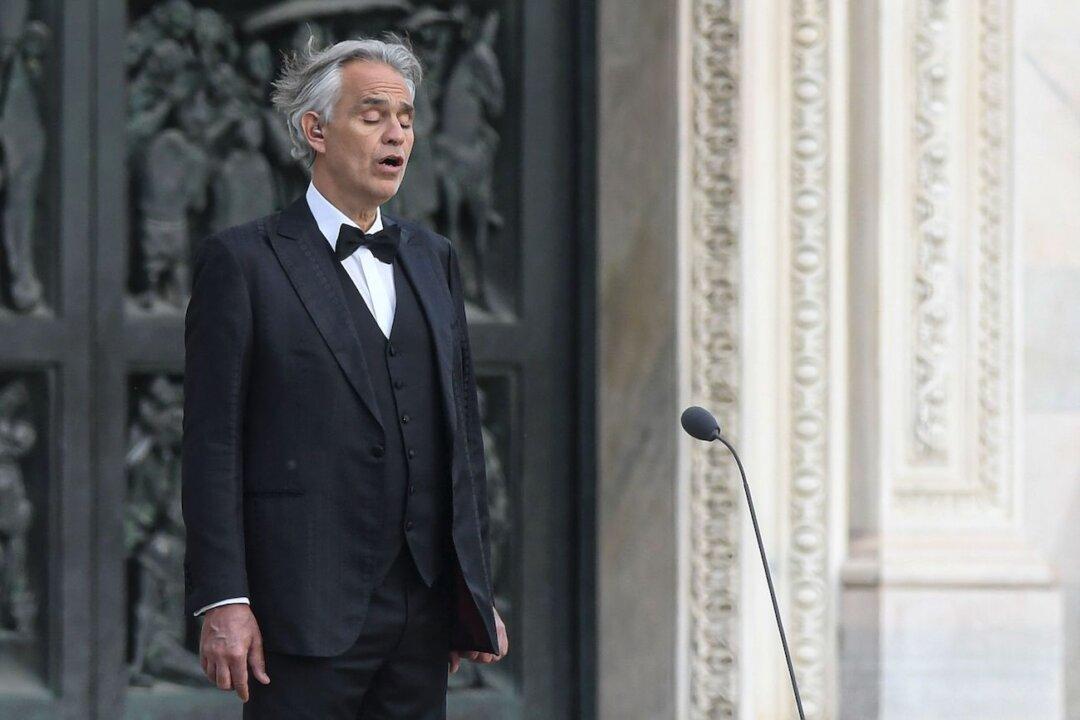Italian singer Andrea Bocelli has revealed he has recovered from the CCP (Chinese Communist Party) virus, commonly known as novel coronavirus, and has donated his blood plasma for research on treatment for the disease.
“The pandemic which has shaken the world has also affected—albeit mildly—me and certain members of my family,” the 61-year-old said in a statement to ABC’s “Good Morning America” on Tuesday.




